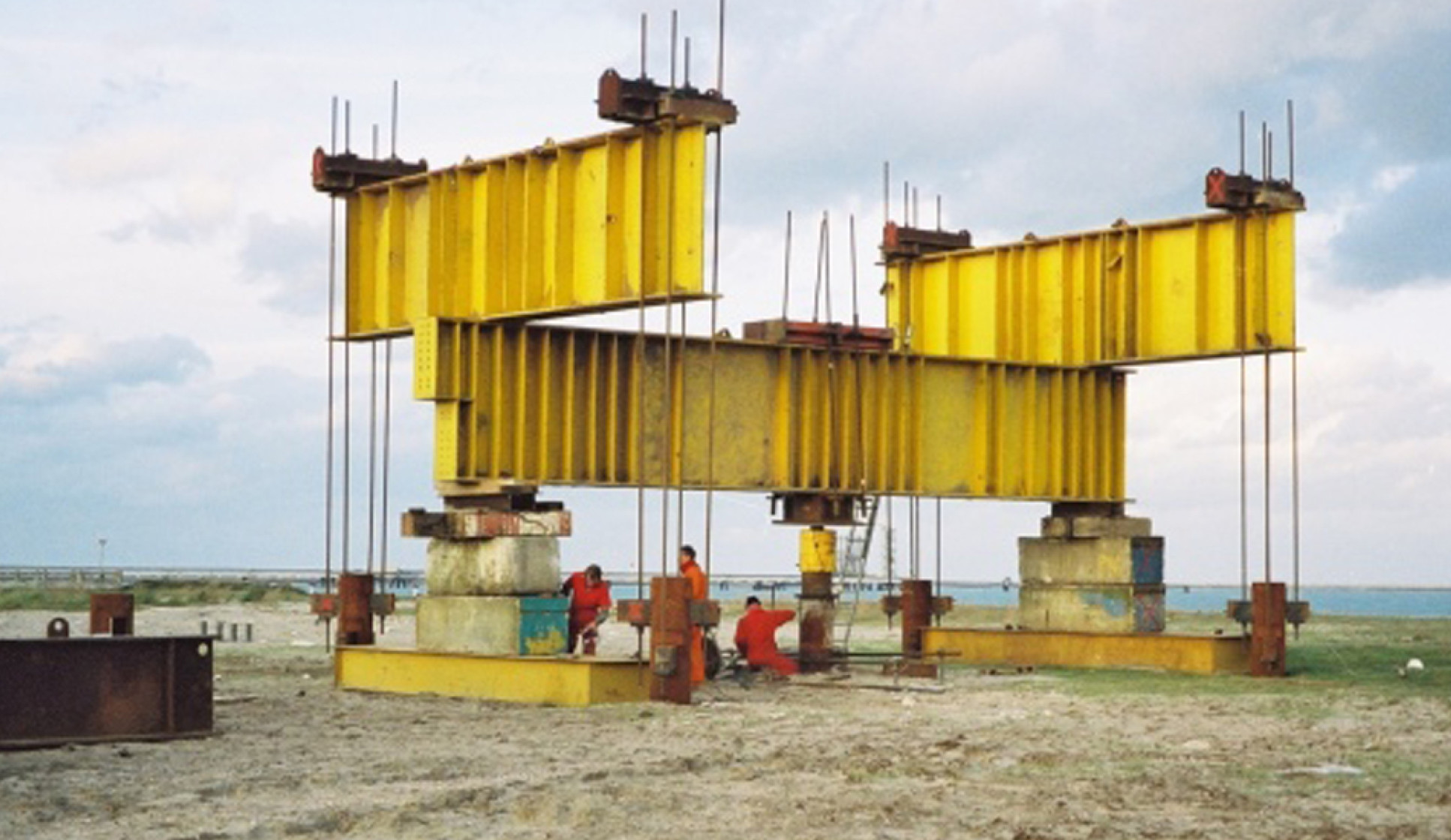In many industries reducing uncertainty leads directly to financial savings. This is especially true in the energy industry. Whether building offshore platforms for oil and gas, or large-scale wind farms, engineers need to reduce the risks of failure in difficult seafloor environments and from adverse weather.

At Imperial, civil engineer Professor Richard Jardine has led a large research effort since the 1990s into the deep foundations and support structures, literally underpinning, such energy facilities. This work has saved oil and gas and offshore wind turbine operators hundreds of million pounds and is now being applied widely in renewable energy projects.
Offshore structures have to survive storm loading from high winds and waves. Most rely on expensive driven steel piles, which can be several metres in diameter and up to 100m or more in length, to anchor the installations to the sea bed. Their reliability is crucial to oil and gas platforms, especially with manned installations.
Foundation costs often make up a third of the overall investment made in offshore wind projects, making their design pivotally important economically. Installation failures, where the pile may buckle as it is driven into the ground, are also very costly, with consequences running to hundreds of millions of pounds in difficult oil and gas cases.
The Imperial team has helped industry move away from their traditional and potentially inaccurate methods for assessing axial capacity towards a research-led approach to designing deep foundations that offers a more detailed and reliable analysis of the interaction between steel piles and the geomaterials into which they are driven.
Their Imperial College Pile (ICP) approach has more than halved the predictive uncertainty associated with traditional analyses allowing better economy, reliability and less risky installation. The ICP has been successfully by the ICP research sponsors for many years and is now being applied widely and internationally.
The latest work by Jardine’s group is a Technology Strategy Board-funded project to better understand how wind turbines can be founded in the difficult chalk seabed conditions faced by major offshore wind farms planned offshore East Anglia, the German North Sea and in the Southern Baltic Sea.
The project is being advanced in conjunction with Scottish Power Renewables and Geotechnical Consulting Group, a local SME, and involves full scale tests that will apply massive axial loads to full scale piles in experiments conducted on the sea floor at a German Baltic windfarm project site.
Jardine is delighted that this work, along with other current projects involving colleagues at the College and elsewhere, will help to promote green energy and reduce the costs of offshore wind-power.

Research support
Discover the support available across the Faculty and University to help the academic community: